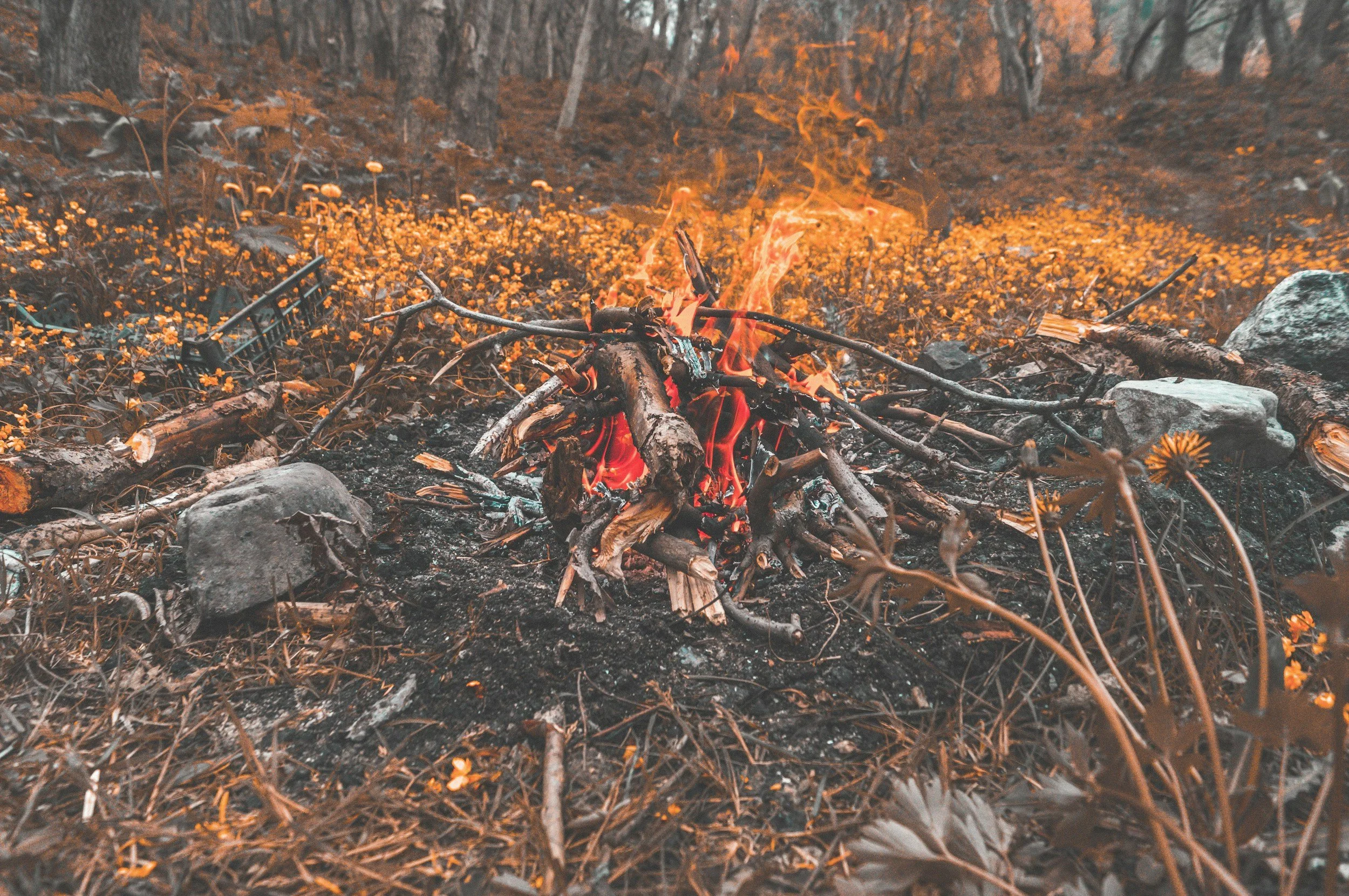Wildfire Prevention 101: Essential Tips to Prevent Human-Caused Fires
By Robbie Zhang
Did you know that nearly 90% of wildfires in the U.S. are started by human activities, not lightning (iii.org)? It’s a staggering number. And it means that most wildfires are preventable.
From tossing a cigarette to starting a small campfire, everyday actions can have huge consequences. The good news? With a little awareness and caution, we can all help prevent wildfires. Here’s how:
Debris Burning: Think Twice Before You Light That Pile
Burning yard waste might seem harmless, but it’s actually the #1 cause of human-started wildfires, responsible for around 29% of them (smithsonianmag.com).
If you absolutely must burn:
Check local regulations and obtain a permit.
Burn only on approved days with no wind.
Keep a water source and shovel nearby.
Never walk away from an active burn.
Better yet, skip the burn altogether. Composting, recycling, or using your city’s green waste program are safer and more sustainable options.
Equipment and Vehicle Use: Sparks Can Be Sneaky
Chainsaws, lawn mowers, welding tools—even your car—can start fires if they spark or overheat. In fact, equipment use causes about 11% of wildfires (smithsonianmag.com).
Tips to reduce the risk:
Avoid yard work or metal grinding on hot, dry, or windy days.
Check your vehicle’s exhaust system—don’t park on dry grass.
Use spark arrestors on dirt bikes, ATVs, and small engines.
A single spark in dry grass can lead to disaster. Stay cautious and proactive.
Campfires: Cozy Doesn’t Have to Be Risky
We all love a good campfire, but they’ve caused thousands of preventable fires over the years (smithsonianmag.com).
To stay safe:
Only build fires in designated fire rings or pits (readyforwildfire.org).
Clear a 10-foot radius around the fire of any dry vegetation (readyforwildfire.org).
Keep your fire small and always attended.
Have a bucket of water and a shovel close by (readyforwildfire.org).
Use the “drown, stir, and feel” method to fully extinguish your fire (readyforwildfire.org).
If it’s too hot to touch, it’s too hot to leave.
Smoking and Fireworks: Celebrate Responsibly
One cigarette butt or a single firework can ignite acres of wilderness in minutes.
Here’s what to remember:
Use ashtrays or portable butt containers—never flick a cigarette outside.
Skip the fireworks if you're near grasslands or forests. Fireworks and matches are responsible for about 5% of wildfire ignitions each (smithsonianmag.com).
Over 7,700 fires were started by fireworks on July 4th alone—across 21 years of records (smithsonianmag.com).
Celebration shouldn’t come at the cost of communities or wildlife. Choose safer alternatives.
Extra Precautions: Be Fire-Aware Every Day
Even if you're not actively burning or camping, your actions still matter.
Watch for Red Flag Warnings and high fire danger alerts.
Avoid spark-prone activities during risky weather.
Don’t drag trailer chains—they can send sparks flying.
Never toss glass bottles into dry grass—sunlight through glass can act like a magnifying lens and start a fire.
When in doubt? Pause and think: could this heat, spark, or flame start a fire? If the answer is yes, don’t risk it.
Final Thought: Prevention Is Powerful
Every fire you prevent is a home saved, a forest spared, and a community protected.
We don’t need heroic acts—just everyday mindfulness. Whether you're grilling in your backyard or riding an ATV on a summer trail, your small choices make a big difference.
Let’s be the spark that stops the next wildfire.

